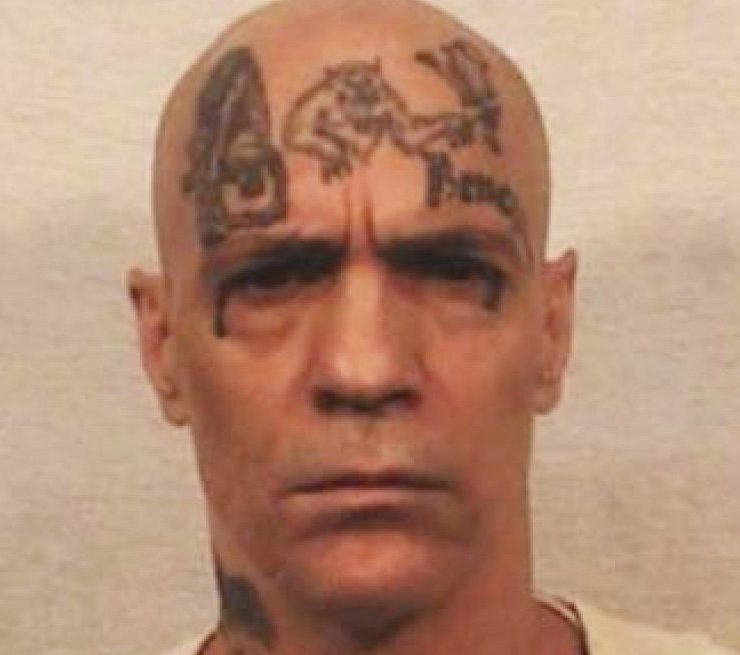SACRAMENTO — Days after filing a lawsuit alleging retaliation by a state prison gang investigator and a Drug Enforcement Administration agent, an incarcerated Richmond native suffered multiple broken bones and other injuries at the hands of a corrections officer, according to multiple sources with knowledge of the incident.
Ronald Dean Yandell, 62, filed a handwritten suit last week, accusing a DEA agent and a California Department of Corrections and Rehabilitation investigator of retaliating against him for his work organizing a prisoner-led hunger strike against solitary confinement, and a peace agreement between rival groups in prison.
On Monday, Yandell was reportedly knocked down while handcuffed and suffered a broken jaw, a burst eardrum, multiple missing teeth, and fractured vertebrae, according to an attorney and another prisoner whose cell is down the hall from Yandell’s.
The incident occurred at California State Prison, Sacramento, where Yandell is being housed while awaiting sentencing in a federal racketeering case.
Richmond native Ronald Dean Yandell is on the Aryan Brotherhoods three-man leadership council, prosecutors say. (California Department of Corrections and Rehabilitation)
Yandell’s lawsuit names two defendants, DEA Special Agent Brian Nehring and CDCR gang investigator Cory Perryman. His suit refers to an email by Nehring that referenced Yandell’s work on the hunger strike and added, “I want to crush him so bad my teeth hurt.” Yandell accuses Perryman and others in CDCR with falsifying records to create conflicts between prisoners, and of documenting a misleading account of a conversation between Yandell, another prisoner and Perryman years ago.
Yandell was convicted last April of multiple counts of racketeering and conspiracy to commit murder, as part of a massive investigation into the Aryan Brotherhood prison gang. Prosecutors listed Yandell as one seat on the three-man commission that runs the gang. He’s expected to receive a federal life sentence later this year and is already serving life in state court for murder and manslaughter convictions over a 2001 double homicide in El Sobrante.
Reached by phone on Tuesday, Yandell’s lawyer, Steven Kalar said he believed Monday’s incident was retaliatory, and noted Yandell still has an active lawsuit over a violent cell extraction that occurred months before he was charged in the racketeering case, in 2019.
“I’m deeply concerned at this episode, particularly given the context of one active suit against CDCR by Mr. Yandell involving a cell extraction, and another suit against agents Nehring and Perryman,” Kalar said, adding that he plans to meet with his client this week and learn more.
Prison officials didn’t immediately respond to a request for comment on the suit or the incident on Monday.
But federal prosecutors have defended the investigators’ work, writing in legal motions that Nehring was eager to investigate Yandell because he’s a known gang leader who was selling drugs and arranging murders from prison. A federal judge is still mulling a motion for a new trial by Yandell’s defense team, which accuses the federal government of vindictive prosecution.
Related Articles
Man found stabbed to death Wednesday in Hayward
Jewelry stolen from Palo Alto home while resident snoozes
An Oakland girl allegedly texted a boy to buy marijuana. His friend tagged along and then killed her mother, police say
All charges dropped against man accused of helping alleged burglars during killing of Oakland cop Tuan Le
Three teens injured after fight breaks out at East Bay high school
Other leaders of the hunger strike and peace treaty have made similar allegations. In Oakland, where four alleged Nuestra Familia leaders are on trial, defense attorneys have accused the federal government of targeting their clients for political reasons. The controversy has two contradictory sides; on one hand, prison gang leaders were able to use their influence to organize a massive prisoner-led political movement and hunger strike which included a lawsuit that restricted the use of solitary confinement in California prisons. But also, prison gang leaders who were released from solitary confinement were then able to use their power and influence to commit crimes and arrange violence by using contraband phones and access to general population yards.
Kalar said he saw parallels between Monday’s incident involving Yandell and two others at the Sacramento prison: The death of an inmate that led to civil rights charges against prison guards, and the murder of a man named Yogi Pinell, a Black Guerrilla Family member who was stabbed to death by two Aryan Brotherhood members in 2015.
Ironically, Yandell was convicted of murder in connection with Pinell’s death, under the theory he helped arrange it. Kalar’s defense was that prison officials knowingly placed Pinell in harm’s way and that Yandell was not involved in the plot to kill Pinell.
Yandell’s suit seeks unspecified monetary damages and for prison officials to return him to a general population yard and release him from more restrictive conditions in administrative segregation.












